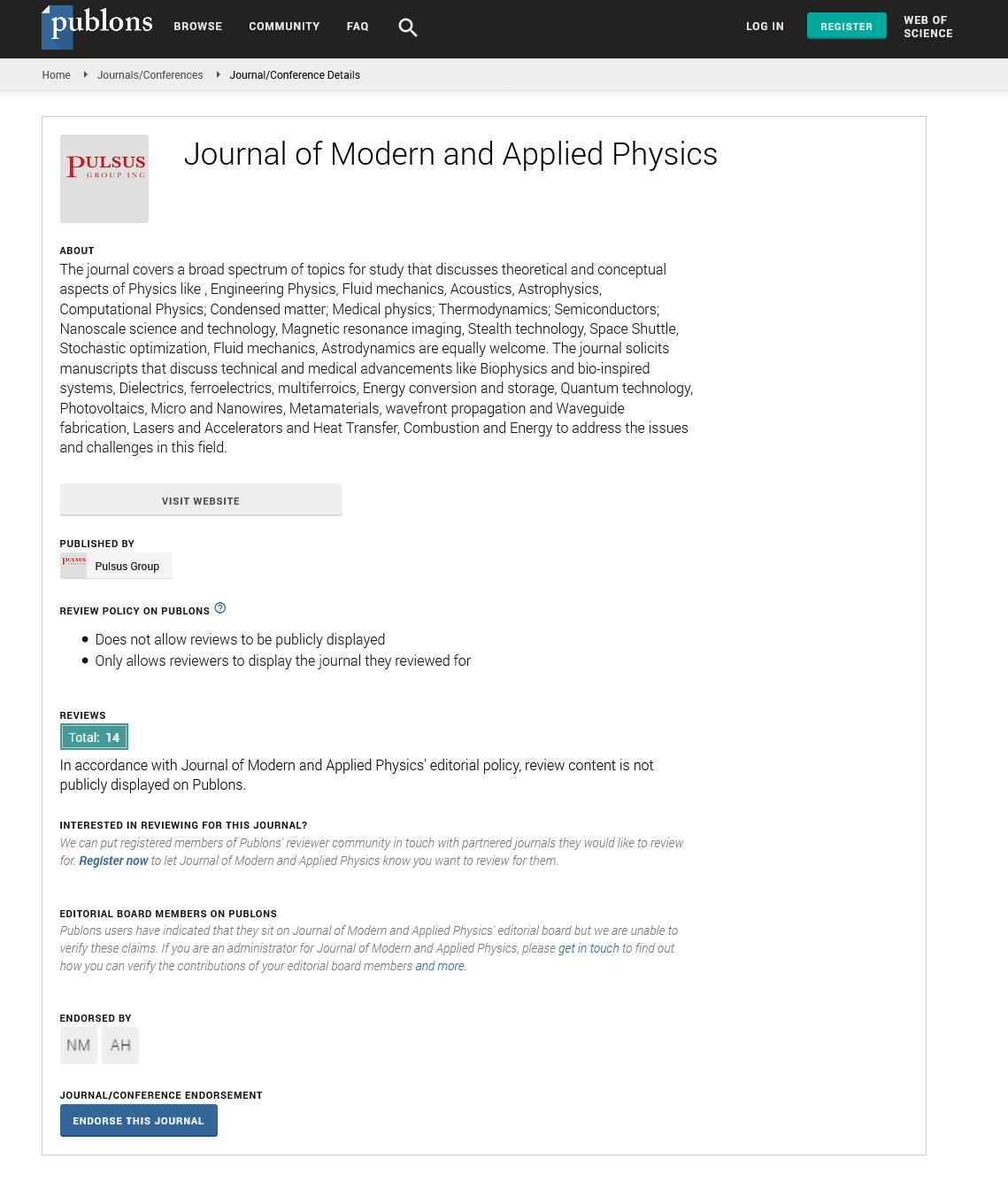
Sign up for email alert when new content gets added: Sign up
Self-assembly of amphiphilic block copolymers: polymeric micelles to polymersomes as drug delivery vehicles
2nd International Conference on Applied Physics and Engineering(ICAPE)
March 15, 2023 | Paris, France
Dhruvi Patel
SVNIT, India
ScientificTracks Abstracts: Jour of Mode & App Phy
Abstract :
Self-assembly of amphiphilic block copolymers display a multiplicity of nanoscale periodic patterns proposed as a dominant tool for the ‘bottom-up’ fabrication of nanomaterials with different levels of ordering. This talk emphasizes on the recent developments in the formation and properties of various nanostructured aggregates resulting from the self-assembly of a variety of block copolymers (BCPs) in an aqueous solution. We briefly describe the BCPs, their types, microdomain formation in bulk and micellization in selective solvents. The research on amphiphilic BCP self-assembly in aqueous solutions has progressed very rapidly with the advances in controlled radical polymerization techniques and emerging applications in technological/biomedical fields most notably as vehicle for drug delivery systems. We also discuss the characteristic features of block copolymers nanoaggregates viz., polymer micelles (PMs) and polymersomes. The solution behavior of amphiphilic BCPs are validate with various characterization techniques such as tensiometry, spectral, thermal, diffraction, scattering and microscopy are discussed to understand the nanoscale self-assembly of these BCPs. The simple preparation and the scalability of micelles from BCPs offer many potential applications as emulsifiers, hydrogels and drug delivery vehicles. Amphiphilic BCPs (with a variety of hydrophobic blocks and hydrophilic blocks; often polyethylene oxide) self-assemble in water to micelles/niosomes similar to conventional nonionic surfactants with high drug loading capacity. Applications of these BCP micelles and polymersomes as nanocarriers in drug delivery systems are discuss. Recent Publications: 1. D. Patel, K. Kuperkar, P. Bahadur, Temperature stimulated self-association and micellar transition for star shaped normal and reverse EO-PO block copolymers and their mixed systems as potential use for anticancer drug solubilization., 2022, Soft Matter, 2022, 18, 4543. 2. D. Patel, R. Jana, M. Lin, K. Kuperkar, D. Seth, L. Chen, P. Bahadur, Salt triggered micellar behavior of a very hydrophilic triblock copolymer Pluronic® F88: Revisiting self-assembly using multitechnique approach., Colloid Polym. Sci., 2021, 229. 3. D. Patel, S. Rathod, S. Tiwari, D. Ray, K. Kuperkar, V. K. Aswal, P. Bahadur, Self-association in EO−BO−EO triblock copolymers as a nanocarrier template for sustainable release of anticancer drugs., J. Phys. Chem. B., 2020, 124, 51, 11750–11761.
Biography :
Dhruvi Patel has her expertise in scrutinize the self-assembly of block copolymers for various delivery system. She has done Ph.D. in Chemistry at Sardar Vallabhbhai National Institute of Technology, Surat, Gujarat, INDIA. Currently she is an associate as researcher with Cornell University, USA. Her research focuses on the exploration of self-assembly and aggregation behavior of block copolymers for targeted applications. She has published several research articles including book chapters in reputed tier II journals.




